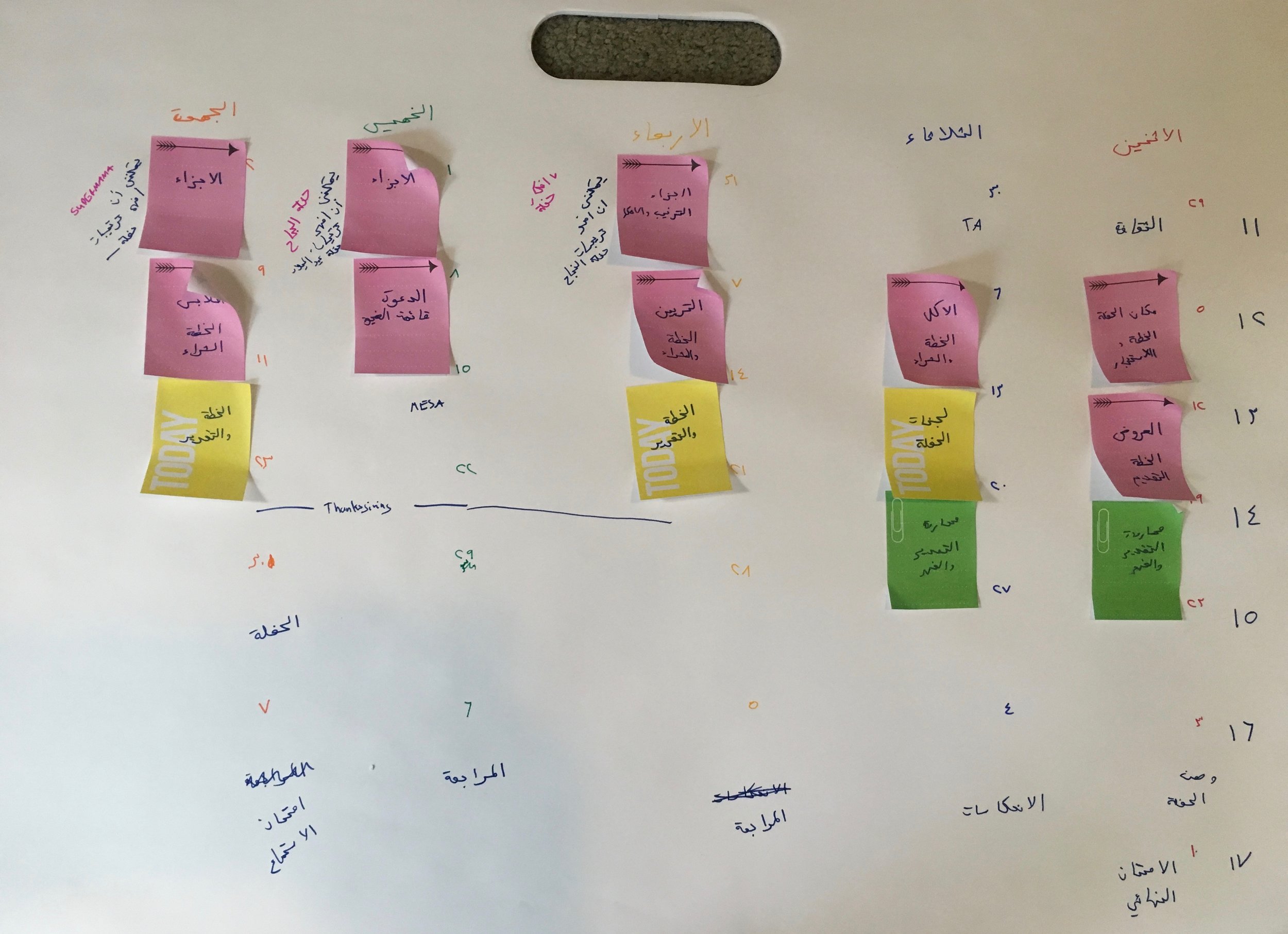Category: Language Teaching
-

Reflecting with Students
As is probably clear to readers of this blog, I think reflection is a crucial skill for learning and teaching. I’ve discussed making time and space for reflection as a language teacher, and ethnographic projects as a way to encourage reflection during study abroad. In this post, I’ll discuss reflecting with students, another valuable practice.
-

Can-Do Assessments: An Update
In an early post on this blog I talked about making assessments based on what students “can do” with language. This year, as we redo our Intermediate Arabic curriculum, we also decided to have no tests. In some ways, this is just a change in terminology, as we have a week of Can-Do Assessments at…
-

Lesson plans: Genre-based approaches and the interpersonal mode
The American Council on the Teaching of Foreign Languages (ACTFL) describes three modes of communication: interpersonal, interpretive, and presentational, and lists Can-Do statements in each of these modes. The presentational mode is for sharing information, opinions, etc, and usually consists of one person communicating with a larger audience, either in writing, speech, or multi-modal forms.…
-

Color-coding to develop meta-linguistic awareness in the classroom
In genre-based approaches to language learning, one of the key goals is to teach students not only what texts mean, but how they mean, so students can use (or resist) these conventions when they express themselves. While the goal of understanding WHAT a text means is fairly straightforwards for students and instructors, I find that…
-

Multilingualism and Plurilingualism: Implications for the language classroom
Last year, I did a series of posts on language ideologies (What is language?) arguing that while these frequently inform our expectations and actions in the language classroom, we don’t think enough about this. Recently, I’ve been delving into the literature on plurilingual ideologies and pedagogies, and thought I would discuss the differences between these…
-

Curriculum Development Part 8: Week 6 Recap, and Final Thoughts
In my last post, I described Weeks 3, 4, and 5. In this post, I’m back with a recap of Week 6 and some final thoughts on the project. I’ve also placed links to all of the curriculum development posts leading up to this unit at the end of this post if you want to…
-

Curriculum Development Part 7: Week 3 Recap, Weeks 4 and 5, Week 6 Planning
In my last post, I reflected upon the second week, and plans for week 3. As I’m posting every other week, the class is going faster than my blog, so this post will cover a week 3 recap, plans for week 4, the week 4 recap, planning week 5, a week 5 recap, and planning…
-

Curriculum Development Part 6: Week 2 Review, Planning Week 3
In my last post, I reflected upon the first week, and plans for the second one. In this post, I’m reflecting upon week 2 and describing planning for week 3.
-

Curriculum Development Part 4: Unit Plan and Week 1 of Party Planning
As I mentioned in my previous curriculum development posts, this year in our Intermediate Arabic classroom we are moving away from the textbook and designing our own units informed by genre-based approaches to language learning. We are concluding our unit on housing, and starting our unit on planning an end of the year party. This…
-

Ethnographic Projects for Study Abroad
In my very first post on this blog, I discussed how despite popular belief, language and intercultural learning are not automatic outcomes of study abroad. I also mentioned three key components of study abroad programs necessary to promote these outcomes: language and intercultural contact, reflection upon this contact, and connecting the pre, during, and post…